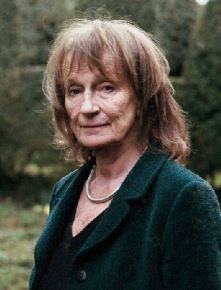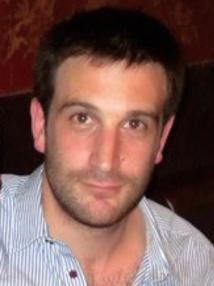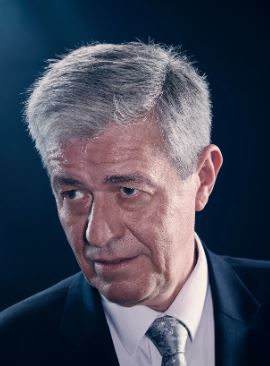The Beckley Foundation has begun a new psychedelic research collaboration with King’s College London, aiming to produce the highest quality images of the human brain under the influence of LSD to date. The study will specifically focus on the neurobiological changes underlying the mystical experience – a non-denominational experience of connection or unity – which has previously been shown to be related to the therapeutic benefits of psychedelic compounds for mental health conditions such as treatment-resistant depression.
In 2016, the Beckley/Imperial Psychedelic Research Programme released the world’s first images of the human brain under the influence of lysergic acid diethylamide, or LSD, at the Royal Academy in London, revealing some of the key mechanisms behind its profound consciousness-altering effects.
Now, six years after those landmark findings, the Foundation has announced the formation of a new collaboration with King‘s College London, which will investigate the brain changes that occur during the so-called ‘mystical’ experience – a profound sense of connection or unity that can occur following ingestion of high doses of psychedelic compounds as well as during religious experiences, meditation, and other practices. Importantly, this experience has been shown to be positively associated with the therapeutic benefits brought about by psychedelic-assisted therapy. In the first clinical study of psilocybin-assisted therapy for treatment-resistant depression, carried out in collaboration between the Beckley Foundation and Imperial College London, it was found that patients who underwent the most profound mystical experiences also demonstrated the greatest subsequent improvement in their depression scores. As a result, a better understanding of the nature of this experience is essential in order to fully understand the mechanism of action underlying psychedelic therapies.
The new research will take advantage of developments in precision neuroimaging technology to image the brain with an unprecedented degree of detail, using high-resolution 7 Tesla fMRI scanning. It will be the first to use this technology to examine the effects of LSD on brain activity and connectivity. Each subject will be scanned multiple times in order to produce a detailed, individualised portrait of their brain activity, revealing the subtle changes of brain states occurring at the time of deep existential and transformational insights, and improving understanding of the neurobiology of consciousness.
“It has long been my goal to better understand the neurophysiology underlying consciousness and its expanded states, so that we might more easily integrate their advantages into our individual lives, and into the web of society. This cutting-edge study will considerably advance our understanding of the ways psychedelics can bring about such profound shifts in consciousness, which are at the core of their healing and transformative potential.” – Amanda Feilding
This project, developed by Amanda Feilding, is a collaboration between the Beckley
Foundation and two major universities in the UK: King’s College London and UCL. Both
universities are consistently ranked among the top ten universities in the UK. The team
has gathered together researchers with the highest level of expertise in neuroimaging
and psychedelic science.

Amanda Feilding
Since 1966, Amanda has been studying the underlying mechanisms of
psychedelics’ effects on consciousness. In 1998 she set up the Beckley
Foundation to carry out scientific research using the latest brain imaging technologies and other techniques, and to reform global drug policy. She has regularly been called the ‘Queen of the Psychedelic Rennaissance’. Over 25 years, her landmark studies include the world’s first brain imaging studies of LSD, DMT, and Psilocybin, the first study to show clinical benefits of psilocybin for treatment-resistant depression, the first study using psilocybin to overcome nicotine addiction in a remarkable fashion, and the first LSD microdosing study to find benefits in mood, vitality, neuroplasticity, and more.

Professor Rob Leech
Robert Leech is a professor in the Department of Neuroimaging at the Institute of Psychiatry, Psychology and Neuroscience at King’s College London. His research has focused on developing and applying innovative neuroimaging and behavioural methodologies to better understand the relationship between brain and behaviour. His work is inherently multidisciplinary, integrating neuroscience and psychology with computer science, and collaborating with cognitive psychologists, computer scientists, statisticians, bioengineers, physicists, and neuropharmacologists. He played an essential role in the production of the ground-breaking results on the neuroimaging studies of the Beckley/ Imperial Psychedelic Research Programme.

Professor Karl Friston
Karl John Friston FRS, FMedSci, FRSB, is a British neuroscientist at University College London and the world’s leading authority on brain imaging. He pioneered and developed the single most powerful technique for analysing the results of brain imaging studies to unravel the patterns of cortical activity and the relationship of different cortical areas to one another. Currently, over 90% of papers published in brain imaging use his method (SPM or Statistical Parametric Mapping). He has also had a profound influence on numerous fields with his ‘Free Energy Principle’, a theoretical framework for understanding the behaviour of sentient minds and other systems. No other thinker has had such a major influence as Friston on the development of human brain studies in the past 25 years.


Podcast
- All
Links
- All
Support
- All
BIPRP
- All
Science Talk
- All
Amanda's Talks
- All
- Video Talk
- Featured
- 2016 Onwards
- 2011-2015
- 2010 and Earlier
- Science Talk
- Policy Talk
One-pager
- All
Music
- All
Amanda Feilding
- All
Events
- All
Highlights
- All
Psilocybin for Depression
- All
Current
- All
Category
- All
- Science
- Policy
- Culture
Substance/Method
- All
- Opiates
- Novel Psychoactive Substances
- Meditation
- Trepanation
- LSD
- Psilocybin
- Cannabis/cannabinoids
- Ayahuasca/DMT
- Coca/Cocaine
- MDMA
Collaboration
- All
- Beckley/Brazil Research Programme
- Beckley/Maastricht Research Programme
- Exeter University
- ICEERS
- Beckley/Sant Pau Research Programme
- University College London
- New York University
- Cardiff University
- Madrid Computense University
- Ethnobotanicals Research Programme
- Freiburg University
- Medical Office for Psychiatry and Psychotherapy, Solothurn
- Beckley/Sechenov Institute Research programme
- Hannover Medical School
- Beckley/Imperial Research Programme
- King's College London
- Johns Hopkins University
Clinical Application
- All
- Depression
- Addictions
- Anxiety
- Psychosis
- PTSD
- Cancer
- Cluster Headaches
Policy Focus
- All
- Policy Reports
- Advisory Work
- Seminar Series
- Advocacy/Campaigns
Type of publication
- All
- Original research
- Report
- Review
- Opinion/Correspondence
- Book
- Book chapter
- Conference abstract
- Petition/campaign
Search type
